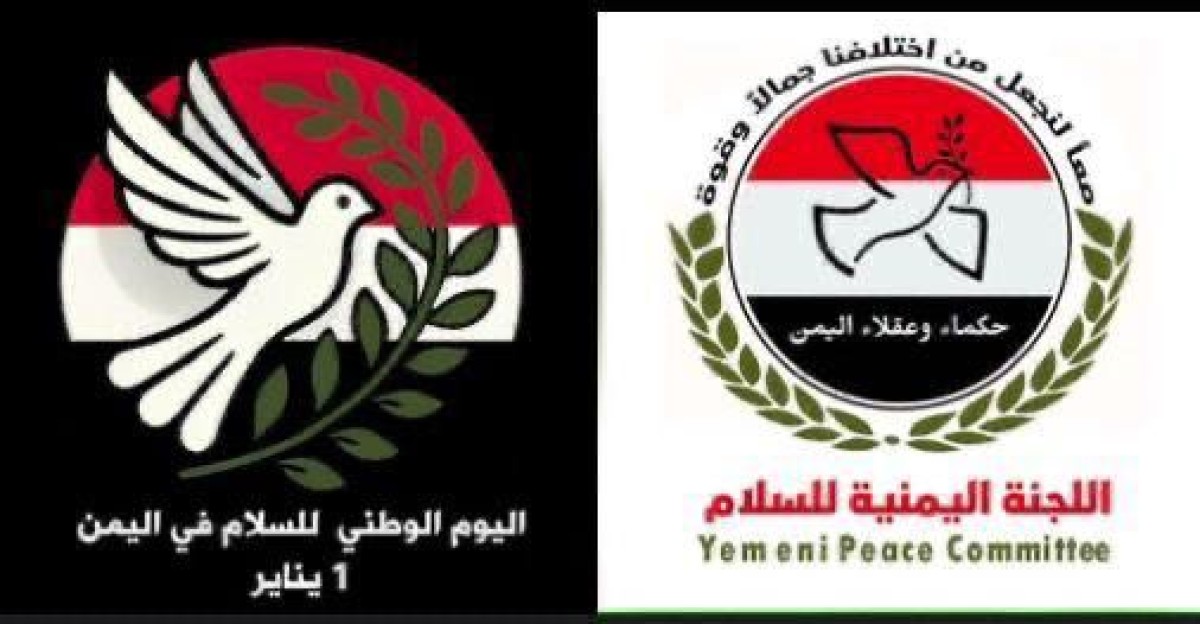Articles

Yemen – January 1, 2025 Peace Day Conference in Yemen Achieves Remarkable Success and Announces the Launch of the Second Peace Initiative
National Peace Day Conference in Yemen Achieves Remarkable Success and Announces the Launch of the Second Peace Initiative
Yemen – January 1, 2025
On Wednesday, January 1, 2025, an important virtual conference was held to commemorate National Peace Day under the slogan, “Peace Begins with Dialogue, is Built through Partnership, and Solidified by Development.” The event saw wide participation from prominent academics and experts from various fields, alongside active representation from Yemen’s diverse governorates. The conference addressed ways to achieve comprehensive and just peace in Yemen, examined obstacles hindering the peace process, and explored opportunities to revive peace efforts long supported by various political factions.
Conference Themes and Key Topics
Participants delved into critical themes forming the foundation for lasting peace in Yemen. Discussions highlighted political challenges, such as the ongoing armed conflict between warring parties, economic difficulties that have devastated infrastructure, and the rise of unemployment and poverty. Social challenges, including sectarian, regional, and tribal divisions, were also identified as key issues undermining social cohesion and national unity.
The conference, however, also spotlighted opportunities to revive the peace process by restoring trust among various parties and promoting community partnerships. Particular emphasis was placed on the essential role of women and youth in achieving sustainable peace. Their empowerment and active participation in political and social processes were deemed crucial for building a stable and unified society.
The Launch of the Second Peace Initiative in Yemen
In a significant announcement, the Yemeni Peace Committee unveiled the Second Peace Initiative, aimed at fostering national dialogue and achieving reconciliation among all Yemeni parties.
This initiative seeks to establish comprehensive and sustainable peace through a multi-phase plan designed to rebuild trust between conflicting parties and redirect efforts toward political solutions for Yemen’s crisis.
Key Components of the Second Peace Initiative
Phase One: Preparing for National Reconciliation
• Conducting consultations with conflicting parties to close the chapter on past grievances and focus on building a shared future.
• Advocating for media reform to curb hate speech and incitement.
• Creating an environment conducive to reconciliation by fostering dialogue and discouraging unilateral actions that could escalate tensions.
• Engaging with regional and international stakeholders to emphasize the importance of Yemen’s stability for global security and development.
Phase Two: Comprehensive Political Negotiations
• Preparing for inclusive negotiations, identifying all participating parties, and drafting a framework that addresses key issues.
• Discussing the cessation of war, defining the transitional phase, and forming a technocratic government capable of managing this period effectively.
• Restructuring security forces to ensure equitable distribution of responsibilities and sustainable stability.
Phase Three: Transitional Justice and Reconstruction
• Implementing measures to address the humanitarian, economic, and social consequences of years of war.
• Rebuilding war-affected areas, compensating citizens for losses, and restoring confiscated public and private properties.
• Holding regional and international parties accountable by urging them to provide financial and technical support for reconstruction efforts.
• Ensuring that transitional justice remains integral to establishing enduring peace in Yemen.
A Call for National Unity
The conference served as a genuine call for national unity. Participants stressed the importance of concerted efforts by all political and social factions to achieve a comprehensive peace settlement.
Speakers emphasized that Yemen’s stability is vital for regional and global security. Achieving just and comprehensive peace in Yemen would pave the way for economic development, poverty alleviation, counterterrorism efforts, and enhanced maritime security in the Red Sea and Bab al-Mandab Strait.
The Role of Public Mobilization in Supporting Peace Efforts
The importance of public mobilization to sustain peace efforts was a recurring theme. Participants urged all segments of Yemeni society to exert pressure on warring parties to resume national dialogue, end the war, and prioritize national sovereignty.
This peaceful public movement is not merely a call for change but a national imperative that reflects the will of the Yemeni people to end the conflict and build a future founded on peace, partnership, and development. It sends a clear message that the people hold the ultimate authority and that their collective voice will compel all factions to return to dialogue.
The Yemeni Peace Committee’s Commitment
In conclusion, the Yemeni Peace Committee reaffirmed its unwavering commitment to pursuing peace and stability in the country. The committee emphasized that the Second Peace Initiative represents a historic opportunity for Yemenis to achieve a unified and secure future.
It called on all local, regional, and international stakeholders to engage positively with the initiative and support its implementation. The committee reiterated that peaceful resolution is the only viable path to ending the crisis and that national reconciliation and transitional justice are the cornerstones for building a unified Yemen that fulfills the aspirations of all its people.


0 Comment